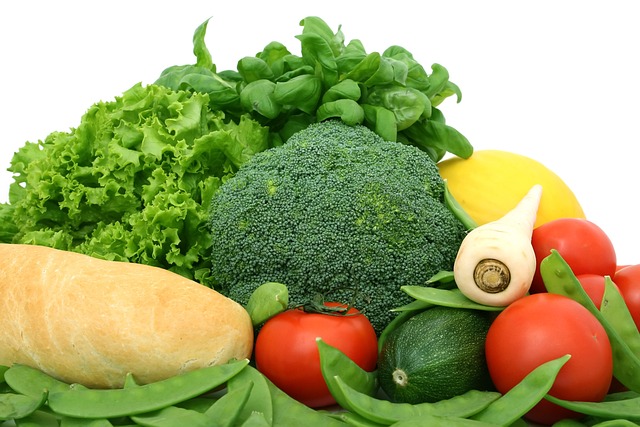Feel free to share!
Table of Contents 👈 Tap Here
Aging is a natural process, but the foods we consume can play a significant role in how our skin looks and feels. Vegetables are packed with vitamins, minerals, and antioxidants that can help combat the signs of aging and promote a youthful appearance. Here are ten anti-aging vegetables you should incorporate into your diet to maintain a vibrant, youthful glow.

Spinach
Spinach is a powerhouse of nutrients that helps fight aging. Rich in vitamins A, C, and K, as well as antioxidants like lutein and zeaxanthin, spinach helps protect the skin from oxidative damage. These nutrients work together to maintain skin elasticity and reduce the appearance of fine lines and wrinkles. Furthermore, spinach’s high water content keeps your skin nourished and radiant.
Kale
Kale is another leafy green that boasts an impressive nutrient profile. It’s loaded with vitamins A, C, and K, which are essential for skin health. Vitamin C, in particular, is crucial for collagen production, helping to keep your skin firm and smooth. Kale also contains antioxidants that combat inflammation and protect your skin from environmental damage.
Bell Peppers
Bell peppers, especially the red and yellow varieties, are rich in vitamin C and beta-carotene. Vitamin C helps with collagen production, which is vital for maintaining skin elasticity. Beta-carotene, which the body converts to vitamin A, helps repair skin tissue and protect against UV damage. Regular consumption of bell peppers can help keep your skin looking youthful and radian .
Carrots
Carrots are well known for having a high beta-carotene content, which the body uses to produce vitamin A.
Vitamin A is essential for healthy skin cell production and repair. Carrots also contain antioxidants that protect the skin from harmful free radicals, promoting a clear and youthful complexion. Eating carrots regularly can help improve skin texture and reduce signs of aging.
Tomatoes
Tomatoes are rich in lycopene, a powerful antioxidant that helps protect the skin from UV damage and reduces redness and inflammation. Lycopene also aids in the production of collagen, which keeps the skin firm and youthful. Incorporating tomatoes into your diet can help improve skin tone and reduce the appearance of wrinkles.
Broccoli
Broccoli is a fantastic vegetable for skin health due to its high content of vitamins C and K, as well as antioxidants like sulforaphane. Vitamin C supports collagen production, while vitamin K helps with skin elasticity. Sulforaphane has anti-inflammatory properties that can help reduce redness and protect the skin from environmental stressors.
Sweet Potatoes
Sweet potatoes are an excellent source of beta-carotene, which converts to vitamin A and supports healthy skin cell production. They also contain vitamin C, which is essential for collagen synthesis. The antioxidants in sweet potatoes help protect the skin from oxidative damage and maintain a youthful appearance.
Cucumbers
Cucumbers’ high water content makes them well-known for their hydrating qualities.
They also contain vitamins C and K, which help improve skin elasticity and reduce the appearance of dark circles. Cucumbers have anti-inflammatory properties that can help soothe irritated skin and maintain a fresh, youthful look.
Beets
Beets are rich in antioxidants, including betalains and vitamin C, which help fight oxidative stress and reduce inflammation. These antioxidants support healthy skin cell function and promote a youthful complexion. Beets also improve blood circulation, which can contribute to a glowing and vibrant appearance.
Avocados
Although often considered a fruit, avocados are frequently used as vegetables in culinary contexts. They are packed with healthy fats, vitamins E and C, and antioxidants that help keep the skin moisturized and supple. The monounsaturated fats in avocados also support skin elasticity and reduce the appearance of fine lines and wrinkles.
Incorporating these anti-aging vegetables into your diet can have a profound impact on your skin’s health and appearance. Not only do they provide essential nutrients that support skin vitality, but they also offer a range of health benefits that contribute to overall well-being. So, fill your plate with these vibrant vegetables and enjoy the benefits of a youthful, radiant complexion.
FAQs: Anti-Aging Vegetables
What are anti-aging vegetables?
Anti-aging vegetables are those that are rich in vitamins, minerals, and antioxidants, which help protect the skin from damage, improve elasticity, and reduce the appearance of wrinkles. These vegetables often contain nutrients that support collagen production, fight oxidative stress, and promote overall skin health.
How do vegetables help with anti-aging?
Vegetables help with anti-aging by providing essential nutrients that support skin health. For example, antioxidants like vitamins C and E neutralize free radicals that cause skin damage, while vitamins A and K promote skin repair and elasticity. Additionally, high water content in vegetables helps keep the skin hydrated and plump.
Can eating these vegetables improve my skin’s appearance immediately?
While incorporating anti-aging vegetables into your diet can contribute to healthier skin over time, visible results may take several weeks to months. A consistent diet rich in these vegetables, along with other healthy lifestyle choices, will yield the best results for improving skin appearance and reducing signs of aging.
Are there any specific vegetables that are better for anti-aging?
Some vegetables that are particularly effective for anti-aging include spinach, kale, bell peppers, carrots, tomatoes, broccoli, sweet potatoes, cucumbers, beets, and avocados. Each of these vegetables offers unique benefits, such as boosting collagen production, providing hydration, and reducing inflammation
How can I eat more of these vegetables?
You can include anti-aging vegetables in your diet by adding them to salads, soups, smoothies, and stir-fries. Try incorporating a variety of these vegetables to maximize their benefits. For example, a spinach and bell pepper salad, carrot and cucumber sticks, or a tomato and avocado sandwich can be delicious and nutritious options.
